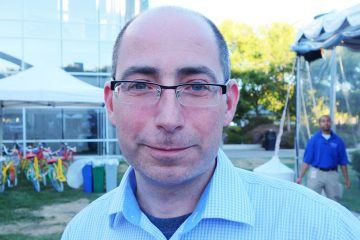David Kaiser in Edge:
 I have a couple of questions that are on my mind these days. One of the things that I find helpful as an historian of science is tracing through what questions have risen to prominence in scientific or intellectual communities in different times and places. It’s fun to chase down the answers, the competing solutions, or suggestions of how the world might work that lots of people have worked toward in the past. But I find it interesting to go after the questions that they were asking in the first place. What counted as a legitimate scientific question or subject of inquiry? And how have the questions been shaped and framed and buoyed by the immersion of those people asking questions in the real world?
I have a couple of questions that are on my mind these days. One of the things that I find helpful as an historian of science is tracing through what questions have risen to prominence in scientific or intellectual communities in different times and places. It’s fun to chase down the answers, the competing solutions, or suggestions of how the world might work that lots of people have worked toward in the past. But I find it interesting to go after the questions that they were asking in the first place. What counted as a legitimate scientific question or subject of inquiry? And how have the questions been shaped and framed and buoyed by the immersion of those people asking questions in the real world?
One example that’s still on my mind is this question of what to do about quantum theory. Quantum theory is by any measure our most successful scientific theory in the history of humankind, going back as long as we choose to go back. Predictions using the equations of quantum theory can be formulated in some instances out to exponential accuracy. We can now use fancy computer routines to make predictions for the behavior of little bits of matter, like electrons and other subatomic particles, and make predictions for their properties out to eleven, twelve, or thirteen decimal places. It’s an extraordinary level of precision. And then other enterprising researchers can subject those predictions to measurement on actual electrons in a real laboratory and check the answers. The measured results and the theoretical predictions in some of these instances will match out to a part per trillion, to one part in 1012. By these kinds of measures, quantum theory is just unbelievably powerful and impressive. And yet, as a story about nature, the conceptual picture that quantum theory seems to suggest is very far from clear. It’s been far from clear now for about a century. It’s not that no one has any idea; it’s that lots of people have lots of ideas. To this day, there’s a real contest of people trying to make sense of what these impeccable equations imply about how the world works.
All that is to say that this is now a topic of ongoing interest and attention among researchers around the world in virtually every continent. And yet, that basic question—what does quantum theory tell us about how the world works?—was ruled out of court as a legitimate subject of scientific inquiry for large periods of time over the century that we’ve been grappling with quantum theory.
More here.
